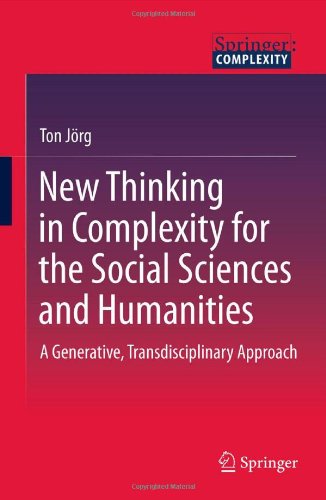

Most ebook files are in PDF format, so you can easily read them using various software such as Foxit Reader or directly on the Google Chrome browser.
Some ebook files are released by publishers in other formats such as .awz, .mobi, .epub, .fb2, etc. You may need to install specific software to read these formats on mobile/PC, such as Calibre.
Please read the tutorial at this link: https://ebookbell.com/faq
We offer FREE conversion to the popular formats you request; however, this may take some time. Therefore, right after payment, please email us, and we will try to provide the service as quickly as possible.
For some exceptional file formats or broken links (if any), please refrain from opening any disputes. Instead, email us first, and we will try to assist within a maximum of 6 hours.
EbookBell Team

0.0
0 reviewsThis book focuses on the development of new thinking in complexity and on the tools needed for this new thinking, i.e. the development of a new language for complexity. This new language is very much about how a nonlinear complex reality is part of real-world complexity. We can start thinking in complexity about the complex topics of our social sciences and humanities by making use of this new language. With the new tools and the new language, it will be possible to deal with the complexity of real-world complexity and to show the promise of harnessing complexity, by turning complexity into effective and advantageous complexity for our social sciences and humanities. It is the very potential of complexity as self-potentiating which makes complexity so beneficial for viewing and doing social sciences. The new tools and the new thinking in complexity may be considered to be the warp and woof of a new science of complexity.